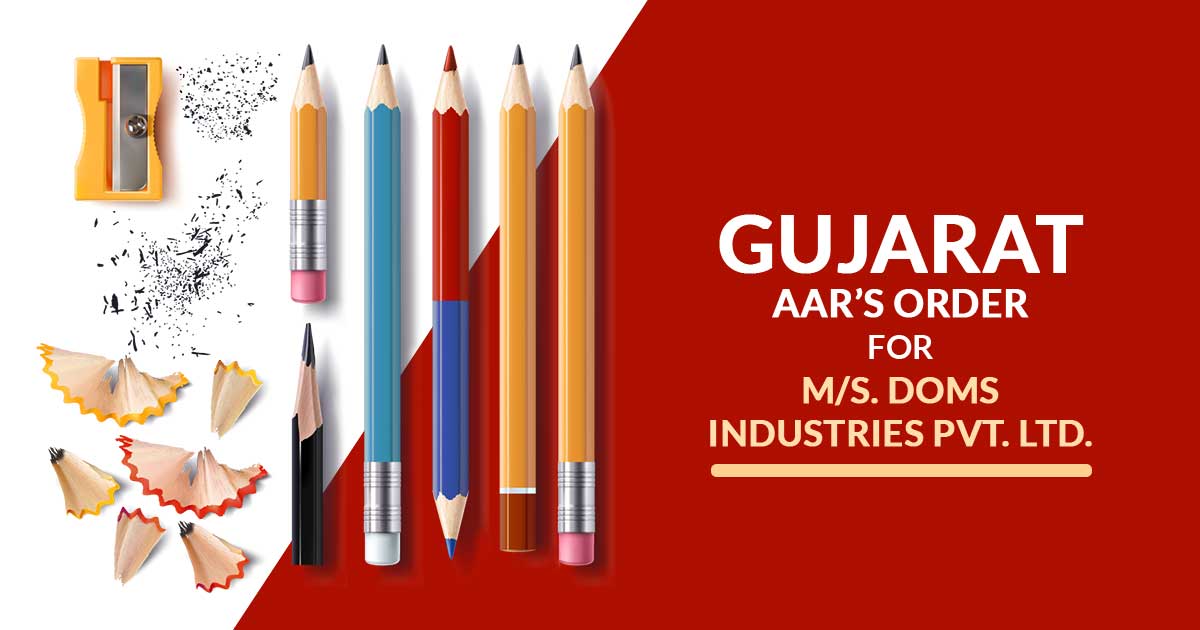
A pencil sold together with a sharpener attracts a higher GST compared to a standalone pencil sale, as per the ruling of the Gujarat Authority for Advance Ruling (GAAR). The distinction arises from the classification of the sale of a pencil and sharpener as a ‘mixed supply.’
Businesses engage in either providing goods or services independently or bundling them together. Bundled supplies are further categorized into two types: mixed supply and composite supply. Mixed supply involves the supply of two or more goods or services together at a single price, and each item can be supplied individually.
On the other hand, composite supply pertains to the supply of two or more goods or services naturally bundled and provided in conjunction with each other in the ordinary course of business, with one being identified as the principal supply.
In the case of mixed supply, the tax liability is determined based on the goods or services with the highest tax rate. For composite supply, one particular good or service is considered the principal supply, and the tax rate for it applies to the entire bundled supply.
Doms Industries, located in Umbergaon (Gujarat), presented information about three of its products. These include pencils sold with sharpeners and erasers, a set comprising a colouring book, pencil, colour pencils, oil pastels, plastic crayons, wax crayons, eraser, scale, and sharpener, as well as a product containing pencils, erasers, scale, and sharpener. In July of the previous year, following a GST Council recommendation, the Finance Ministry notified an 18% GST rate for sharpeners, leading to a shift in the taxation dynamics.
Consequently, the company approached the AAR seeking advance rulings on three inquiries. Firstly, whether the supply of pencil sharpeners along with pencils, considered the principal supply, falls under the classification of “Composite Supply” or “Mixed Supply.” Secondly, the appropriate HSN code to be applied. And thirdly, whether the inclusion of a sharpener in a kit with a nominal value affects the tax rate. If so, what will be the tax rate, and which HSN code should be utilized.
According to the GAAR, each item within the products cannot naturally be bundled or supplied together in the ordinary course of business. Additionally, each item can be sold independently. This implies that the supply of pencil sharpeners along with pencils is categorized as a ‘Mixed Supply.’ Furthermore, GAAR asserted that the supply of sharpeners along with the kit with nominal value does impact the tax rate.
Read Also: New List of GST Rates & HSN Codes on All Stationery Items
An industry expert noted that the classification of supply as composite or mixed remains a perennial point of contention between authorities and the industry. This is due to the absence of a one-size-fits-all logic or principle that can be universally applied. While pencils are generally sold with sharpeners, supporting the argument for composite supply, the alternative perspective is valid as well—pencils can be sold without sharpeners, and vice versa. The expert emphasized that determining the value of constituents, industry practices, the parties’ intentions, and invoicing methods inherently involve subjectivity, leading to diverse interpretations and resulting disputes.
| Case Title | M/s. Doms Industries Pvt. Ltd., |
| GSTIN Number | 24AAACW6734AIZP |
| Date | 30.12.2022 |
| Applicant by | Rahul Bhupendra Shah, Chintan, Shah, Devam Sheth, Manish Shah |
| Gujarat AAR | Read Order |









